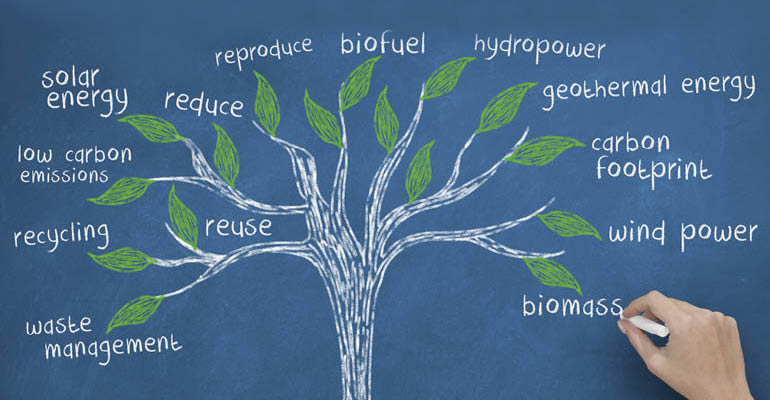Millennials Buy Products They Believe are Ecofriendly and Companies are Responding
Millennials want companies to have a positive impact on the environment.

Millennials tend to prioritize buying from companies they believe have environmentally sustainable practices, and they are doing their homework to determine which companies they most trust, according to new research findings.
Increasingly, brands are seizing on this consumer behavior, boosting messaging, and sometimes changing how business is done to attract this cohort.
Many retailers and manufacturers are posting sustainability practices on line, where Millennials spend much of their time. These firms are securing third-party certifications to show authenticity. And some are sponsoring environmental projects to engage youth, as well as to impress on consumers that the firms exemplify the same values as this generation of consumers.
The Shelton Group, a marketing communications agency, recently released a report based on a survey of 1,000 Millennials across the U.S., showing 70 percent said a company’s environmental focus impacts their purchasing decisions. They believe large companies especially can have positive impact.
“Millennials state they see potential for these corporations to improve sustainability on a larger scale than they feel they could do individually. Meanwhile, companies have revised their communications to consumers, and Millennials are paying attention,” says Virginia Vowell, senior research analyst for Shelton Group.
When asked the top three actions companies could take to earn their trust, the leading answer was to address environmental problems inherent in the manufacturing of products. That could be by reducing packaging or addressing how manufacturing processes affect water and air quality.
With regard to recycling, especially, Millennials are hesitant to trust, according to nonprofit Keep America Beautiful (KAB).
“We know that they have a greater level of skepticism than the general public—10 percent more. Because of this skepticism, reinforcing what recyclable materials can become when recycled is a priority message that we want to deliver to Millennials,” says Brenda Pulley, senior vice president, recycling, Keep America Beautiful.
“Keep America Beautiful believes we [including businesses] need to reach Millennials ‘where they live,” by communicating about the benefits of recycling through social media channels such as Facebook, Twitter and Instagram as a first step in raising awareness.”
Vowell confirms that social media is key, more than ever. Unlike other generations, rather than just focusing on messages at the store or through traditional media, Millennials are getting online to size up brands’ environmental consciousness.
PepsiCo officials seeks to establish the firm’s credibility by engaging consumers in its programs.
“We know we can be a driving force to change recycling habits and help increase the recycling rate,” says Tom Mooradian, manager, environmental sustainability at PepsiCo. “We also know that we can’t do it alone. And building trust with Millennials is a crucial step to increasing the recycling rate, driving significant behavior change and continuing to deliver sustainable long-term growth.”
The company’s Zero Impact Fund is an example of its work to try and engage youth and earn their respect. PepsiCo rewards selected colleges and universities for their ideas for developing sustainability initiatives, or strengthening existing ones, on their campuses.
“We’re also partnering with college-focused blogs to allow us to speak directly to Millennials and form relationships with these consumers in authentic ways,” says Mooradian.
It’s not just large corporations working to establish authenticity. Boulder, Colo.-based Eco-Products, a food service product supplier, does it through third-party certifications, such as Biodegradable Products Institute (BPI) certification for composability.
“Having third parties validate claims goes a long way in assuring the market that our products will meet their environmental expectations,” says Sarah Martinez, director of marketing for Eco-Products, who says the company’s social media outreach is drawing fairly heavy traffic from youth.
“I think one of the best ways we’ve demonstrated our authenticity is through our B Corp. certification (requiring companies to meet rigorous social and environmental performance and accountability standards],” Martinez says. “It validates our efforts to use our business as a force for good, and it affirms that we are taking a broad range of impacts and stakeholders into account when we make business decisions.”
Despite Millennial’s insistence on knowing companies’ sustainability practices, they lack knowledge in some areas, according to Scott Cassel, CEO of Product Stewardship Institute.
“Consumer products companies educate on conserving resources, reducing greenhouse gas emissions, and how their distribution network is getting products to market,” Cassel says. “Millennials are doing their research on these sustainability issues, which are on the upstream side. But they are not being well educated about the downstream side. They are not going to put pressure on companies to take care of that unless they know this needs to happen.”
About the Author(s)
You May Also Like




